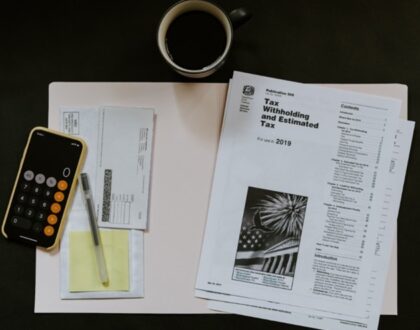Be a more resourceful tax professional

The nature of taxation is dynamic. Tax rates, incentives, regulations, exemptions, benefits, and deductions change with the change in Government policies, states, location, and even time. Hence, there is a need to keep an eye on ever-changing taxation matters.
This can be done by keeping an eye on ever-changing tax rules, continued education, increasing tax knowledge, resourcefulness and fire in the belly to serve your clients with the best of your knowledge and dedication.
It’s the depth of your knowledge that makes a difference between a beginner, tax pro and an experienced tax professional. However, you may be at the beginning of your tax career. However, active learning in tax planning, regulations, and compliance can help grow your skills and level of service for your clients. There are two tax components that you need to focus on. These include tax planning, and tax compliance.
Tax planning starts from the very first day of the business. In fact, the first step in starting a business is choosing a business structure that directly impacts the tax rate and compliance. For instance, there are different tax rates for the sole proprietor, Limited Liability Company, corporation, partnership etc. And the extent of compliance also differs depending on your chosen structure. So, whenever there is something to choose, it’s a point of planning and requires extensive knowledge to select the appropriate option.
The next planning stage is a classification of transactions in appropriate tax codes. As we know, different tax codes carry different tax rates. Some have a higher and some have a lower tax rate. So, if you have an option to classify accounting transactions in different codes, choosing a code with a lower tax rate can make a difference. However, you need extensive understanding to identify if that’s in line with the compliance.
Similarly, exemptions like personal allowance/investment incentives need to be adjusted against taxable income. So, how you adjust taxable income against allowance directly impacts the final tax liability. Hence, there is a strong need to understand that appropriate tax planning can only be done when you actively manage tax planning options.
And the second component of tax is compliance. It means you must not violate any tax regulations to save the tax. Otherwise, it might lead to interest/penalties in the case of a tax audit from the regulatory authority.
So, there are two important areas (tax planning and tax compliance), where tax professionals must excel in serving their clients in their best interest. A pro-tax advisor with recent knowledge can manage these planning and compliance aspects. So, keep expanding your knowledge to make yourself a tax advisor that adds value to your client.
Another important aspect is that tax advisor can be an excellent resource in case of any query from the tax authority. It’s because they deeply understand tax regulation, it puts them in a position to explain accounting/tax treatment impacting the tax liability.
A pro tip to become a top-tier tax pro is to offer more to clients and sharpen your tools.
So, if you have extensive knowledge of tax codes, exemptions, investment incentives, and tax laws. In that case, it puts you in a better position to calculate tax liability in a way that tax is mitigated/minimized without compromise on tax laws/regulations. So, extensive knowledge enables you to perform better and become an enhanced professional. That’s the knowledge and understanding which makes you a valuable resource for the client and they hire you to do taxes rather than doing it themselves.
Conclusion
The taxation system is dynamic and changes with state, cities, and time. So, the success of any tax professional lies in gaining an extensive understanding of tax planning and compliance. Tax planning is how you choose between available options to save taxes. For instance, the selection of the business structure directly impacts the tax liability.
Similarly, appropriate classification of the accounting transaction in chart of account/tax codes can make a significant difference. In addition, adjustment of deductions/allowances can lead to a reduction in the overall liability. This is the tax planning aspect that can be better managed when you have broader tax knowledge as being tax professional.
The second component of taxation is compliance. In this area, you need to ensure there is no violation of any tax code; otherwise, it might lead to interest/penalties,
The success of a tax professional lies in continued education, offering more to your clients, increasing your resourcefulness, and helping your clients to adequately save taxes while ensuring 100% compliance with the regulations. This can only be done when you actively learn to enhance your tax knowledge. And the best way to improve tax knowledge is by enrolling in tax courses at Takeaway Tax University.
We offer classes for beginner, intermediate, or experienced tax pros. All classes are online, and we ensure to train you in basic to advanced tax knowledge for tax season and how to offer more to your clients throughout the entire year, not just during tax season. Enroll today to become top tier tax professional.
Recommended Posts

Accountant vs. Tax Pro: Differences & Advantages
July 20, 2023




